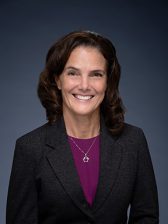Since 1959, Hawai‘i has partnered with and benefited from WICHE through regional collaboration, resource-sharing, sound public policy, and innovation.
Download the factsheet for Hawai‘i here.
2023-24 ACADEMIC YEAR
by Hawai‘i students through WICHE Student Access Programs
through WUE
through WRGP
through PSEP
WICHE’s Student Access Programs
WICHE operates three Student Access Programs that together saved students $613 million in 2023-24. Each program supports students at each level of postsecondary education: undergraduate, graduate, and professional healthcare studies.
- Students gain from increased choice and savings.
- Schools gain by optimizing enrollments.
- States and Pacific Island members gain by growing the skills of those they serve and strengthening their workforce.
PSEP makes medical education affordable. I have assisted vulnerable populations at the student-operated clinic, mentored high school students interested in healthcare careers, and learned about traditional Hawaiian medicine. These experiences will positively influence my future practice as a physician. As a first-generation college graduate, I am extremely grateful for PSEP financial support.
MATTHEW, Montana resident, Doctor of Medicine, University of Hawai‘i at Mānoa
Improving Lives in Hawaiʻi
WICHE works collaboratively to expand educational access and excellence for all residents of the West. By promoting innovation, cooperation, resource sharing, and sound public policy, WICHE strengthens higher education’s contributions to the region’s social, economic, and civic life. Learn more about our mission.
WICHE brings together senior academic leaders to foster dialogue about issues facing individual institutions through its leadership and professional development networks.
WESTERN ALLIANCE OF COMMUNITY COLLEGE ACADEMIC LEADERS – 2-YEAR INSTITUTIONS
- Hawai‘i Community College
- Honolulu Community College
- Kapi‘olani Community College
- Kaua‘i Community College
- Leeward Community College
- University of Hawai‘i Maui College
- University of Hawai‘i System
- Windward Community College
Della Teraoka, University of Hawai‘i System, is a member of the Alliance executive committee.
WESTERN ACADEMIC LEADERSHIP FORUM – 4-YEAR INSTITUTIONS
- University of Hawai‘i System
- University of Hawai‘i at Hilo
- University of Hawai‘i at Mānoa
- University of Hawai‘i, West O‘ahu
Debora Halbert, University of Hawai‘i System, is a member of the Alliance executive committee.
WESTERN ACADEMIC LEADERSHIP ACADEMY is a year-long professional development program for academic leaders aspiring to become chief academic officers in the WICHE region. Two cohort members from Hawai‘i institutions have participated in the Academy since its inception in 2015.
Thanks to collaboration with the Midwestern Higher Education Compact (MHEC), one of four U.S. regional higher education compacts, WICHE-region educational institutions, nonprofits, and public education entities can benefit from three programs: MHECtech, which provides competitively bid purchasing contracts for an array of hardware, software, and technology services; MHECare, which provides a student health insurance plan and teletherapy services; and a MHEC Cyber Insurance Program, which offers risk transfer and advisory solutions. Learn more.
Hawai‘i participates in the STATE AUTHORIZATION RECIPROCITY AGREEMENT (SARA) through WICHE. This voluntary agreement provides reciprocity for the state authorization of distance education.
WICHE Behavioral Health Program (BHP) continues to assist the state of Hawai’i in the operation and continuous accreditation of its psychology internship consortium. Three Hawai’i state agencies – the Department of Education, Department of Health, and Department of Public Safety – provide funding to support the WICHE BHP’s ongoing development and operations of the Hawai’i Psychology Internship Program (HI-PIC).
The Hawai’i Department of Education also contracts with the WICHE BHP to provide recruitment and contracting of Clinical Psychologists to ensure all program requirements for supervision and support of staff, students, and program fidelity are maintained for West Hawai’i School Based Behavioral Health (WH-SBBH) program.
The BHP Together With Veterans Program, focused on reducing Veteran suicides, also has one site in Hawai’i, and has served nearly 2,300 rural veterans.
Knocking at the College Door is the leading U.S. resource for projections of college-ready students. Knocking, which includes a quadrennial publication with additional analysis, is essential for postsecondary policymakers, planning and workforce efforts, and economic development.
WICHE offers curated data and policy resources to support better-informed decision-making:
- Tuition and Fees in the West includes tuition, fees, and enrollment data about 350+ public institutions in the West.
- Benchmarks: WICHE Region presents information on the West’s progress in improving access to, success in, and financing of higher education.
- Data on over 35 indicators in WICHE’s Regional Fact Book for Higher Education in the West.
WICHE’S CHIEF ACADEMIC OFFICERS NETWORK Staff from the University of Hawai‘i system office also participate in regular collaborative calls with colleagues around the region.
WCET- The WICHE Cooperative for Education Technologies is the leader in practice, policy, and advocacy of technology-enhanced learning in higher education. WCET members include Kapi‘olani Community College, the University of Hawai‘i System, and the University of Hawai‘i – West O‘ahu.
Gloria Niles, University of Hawai’i System, serves on the WCET Steering Committee.
WICHE has convened the OERWest Network, which is part of a nationwide collaborative to scale the development and adoption of free course materials. Open educational resources (OER) have shown promise in improving student outcomes, particularly for poverty-affected students, for whom the high cost of textbooks can be a barrier to postsecondary success.
WICHE Commissioners
*indicates Executive Committee member
Terrence George
President and CEO, Harold K. L. Castle Foundation
Terrence George
President and CEO, Harold K. L. Castle Foundation
When you move from the prairies of Minnesota at age three to the urban sophistication of Tokyo in 1961, it’s hard to move back. This is what happened to Terry, who has spent most of his life in archipelagoes: the world’s largest (Indonesia), the second largest (the Philippines), and the absolute finest (Hawai’i). Vibrant democracies also seem to be a theme for him, with much work to deploy private philanthropic dollars to improve social justice and good governance in the world’s first democracy (the United States), one of its most raucous (the Philippines), and its largest (India). Along the way, he has studied and forgotten eight languages, made thousands of grants to hundreds of nonprofit organizations and universities in 14 countries, and eaten a lot of good street food.
Terry is a 1976 graduate of Punahou School. He received his bachelor’s degree from Stanford University, his master’s degree in law and diplomacy from Tufts University, and his executive MBA from the Shidler College of Business at the University of Hawai’i.
From 1989 to 1998, Terry served in the Ford Foundation’s field offices in Manila and New Delhi as program officer for rights and social justice, local governance, and regional security and cooperation. Terry moved back to Hawai’i in 1998 to marry his wife, Julie, a first-grade teacher at Kamehameha Schools, and to raise their two children, Gracie and Geoffrey. From 1998 to mid-2003, Terry was chief program officer for the Consuelo Foundation in Hawai’i.
Terry is president and chief executive officer of the Harold K. L. Castle Foundation, which he has served since 2003. The foundation invests about $7 million a year in grants to schools, universities, and nonprofit organizations throughout Hawai’i to achieve its mission of:
• Closing the achievement and preparation gaps in public education
• Restoring nearshore marine ecosystems
• Increasing communities’ ability to adapt to climate change
• Strengthening the vibrancy of Windward Oahu’s communities.
Terry lives in Kaimuki in a three-generation household. He serves on the boards of the Hawaii Business Roundtable, Hawaii P20 Council, HMSA, and Hanahau’oli School. Terry also serves on the Summer Internship Selection Committee for the Hawaii Carpenters Apprenticeship and Training Fund. He is past chair of the board of the National Kidney Foundation of Hawaii and past president of the Rotary Club of Honolulu. Terry enjoys spending his spare time reading, cooking, and hiking.
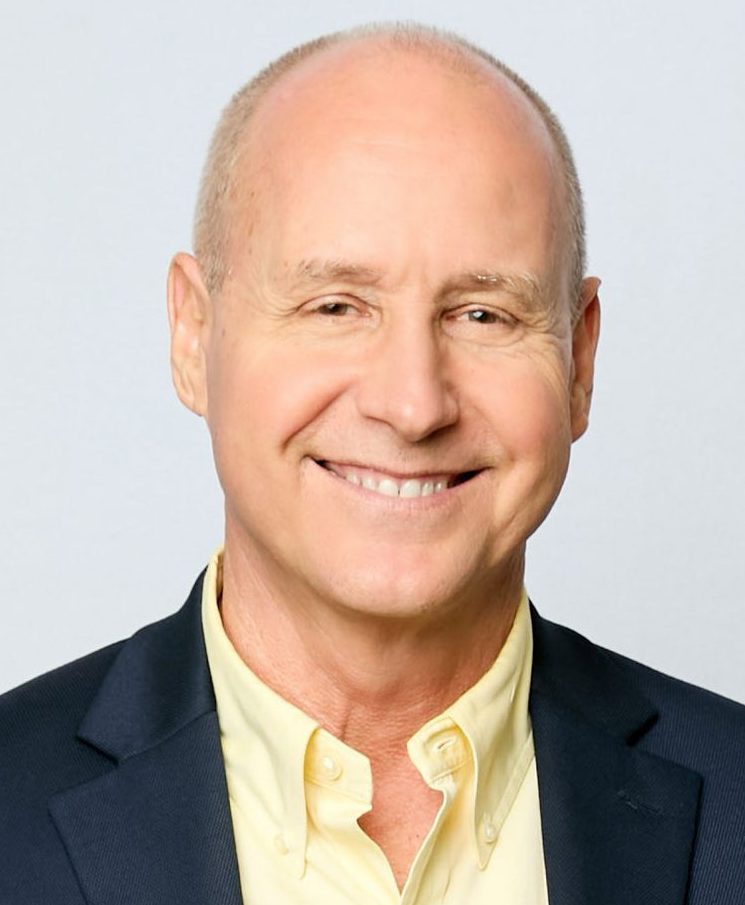
* David Lassner
President Emeritus, University of Hawai'i
David Lassner *
President Emeritus, University of Hawai'i
David Lassner served for more than 10 years as the 15th president of the University of Hawai‘i (UH), where he led the 10-campus UH system, the state’s sole provider of public postsecondary education, and Hawai‘i’s flagship research university, UH Mānoa.
Lassner has an ongoing focus on helping more Hawai‘i residents, particularly those who have historically been left behind, earn college degrees and credentials with a focus on critical areas of workforce shortage such as in education, health care, technology, energy, and the skilled trades. He is committed to strengthening the state’s economy by leveraging UH research and innovation to create and fill more high-quality jobs locally. Lassner is advancing UH’s commitment to become a model Indigenous-centered university that cares for Hawai‘i, Native Hawaiians and all of Hawai‘i’s people as it weaves together modern science and education with the traditional Indigenous wisdom, values and practices that made the Hawaiian islands a model of self-contained sustainability before Western contact.
Under Lassner’s leadership, metrics of student success showed steady improvement across the UH System and enrollment has remained strong. A restructuring of the relationship with UH has led to record philanthropic investment. A focus on research that matters to and is grounded in Hawai‘i has led to record extramural funding. And strong management practices have ensured financial stability through recessions and a pandemic.
Lassner began working at UH in entry-level roles in information technology (IT) in 1977, eventually becoming UH’s first chief information officer and then its first vice president for IT. He was appointed interim president in September 2013, and the “interim” was removed in June 2014. Lassner is also a member of the university’s cooperating graduate faculty and has taught both online and in-person at UH Mānoa in computer science, communications, business, and education.
Lassner is a current commissioner and former chair of the Western Interstate Commission for Higher Education (WICHE), as well as a member of the Board of Governors of the East-West Center. He serves on the National Science Foundation (NSF) Advisory Committee on Cyberinfrastructure and on the boards of the Pacific International Center for High Technology Research (PICHTR), the Maui Economic Development Board (MEDB), the ‘Iole Stewardship Center, and the Blood Bank of Hawai‘i. He also serves on the boards of the Mountain West and Big West intercollegiate athletic conferences.
In prior positions, Lassner played an active leadership role in a variety of local, national, and international information and communications technology organizations, and has been recognized numerous times for his service and leadership. He chaired Hawai‘i’s Broadband Task Force and served on the boards of Hawai‘i’s High Technology Development Corporation and Public Broadcasting Service (PBS) affiliate. Lassner chaired the boards of the Pacific Telecommunications Council (PTC) and EDUCAUSE and was a founding steering committee member and past chair of WCET – WICHE Cooperative for Educational Technologies.
An active principal investigator for more than 25 years, Lassner led Hawai’i’s major statewide project funded by the U.S. Department of Commerce that interconnected all public schools, libraries, and campuses on six islands with fiber optics, and he has had NSF support for more than 25 years focused on research and education networking and cyberinfrastructure in Hawai‘i and the Pacific. He is principal investigator for the Maui High Performance Computing Center and for the Pacific Disaster Center, two major long-term U.S. Department of Defense programs based on Maui. In all, Lassner has served as principal investigator for more than $560 million of extramural funding.
Lassner earned a bachelor’s degree in economics summa cum laude and Phi Beta Kappa followed by a master’s degree in computer science while supported by a university fellowship at the University of Illinois at Urbana-Champaign (UIUC). He earned his doctorate degree in communication and information sciences at the University of Hawai‘i.
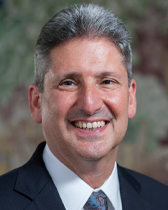
Colleen Sathre
Vice President Emerita, University of Hawai'i
Colleen Sathre
Vice President Emerita, University of Hawai'i
Colleen Sathre is vice president emeritus of planning and policy of the University of Hawaii, where she served the university system as the chief academic planning officer for more than 25 years. She managed efforts that produced university mission statements and strategic plans, tuition schedules, university centers on neighbor islands, performance indicators, a reorganization of university information technology services, and numerous board and executive policies. She co-authored the book, “The Art and Politics of Academic Governance” in 2007 with Kenneth Mortimer, president emeritus of the University of Hawaii and Western Washington University. Sathre holds a B.A. from the College of St. Benedict, St. Joseph, MN; and an M.A. and Ph.D. from the University of Minnesota.

Legislative Advisory Committee
Lisa Kitagawa
Representative, Hawai'i State Legislature
Lisa Kitagawa
Representative, Hawai'i State Legislature
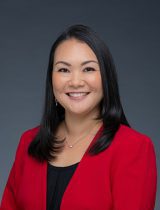
Donna Mercado Kim
Senator, Hawai'i State Legislature
Donna Mercado Kim
Senator, Hawai'i State Legislature
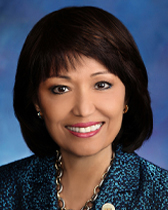
Michelle N. Kidani
Senator, Hawai'i State Legislature
Michelle N. Kidani
Senator, Hawai'i State Legislature
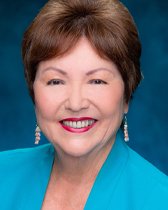
Amy Perruso
Representative, Hawai'i State Legislature
Amy Perruso
Representative, Hawai'i State Legislature
